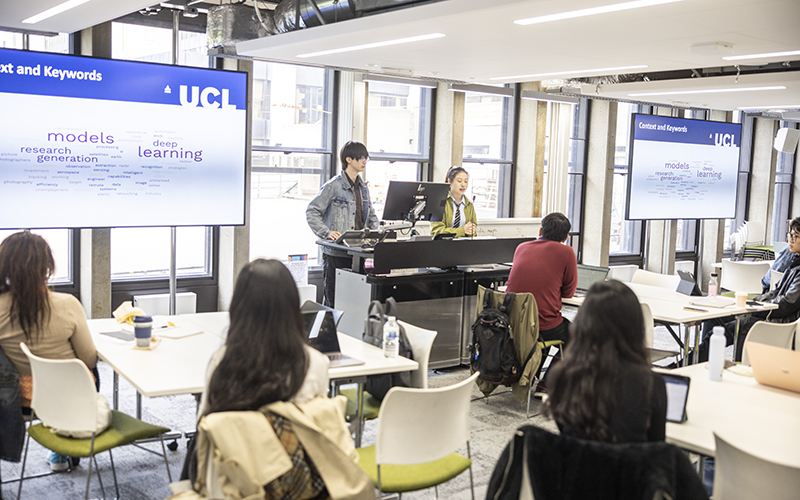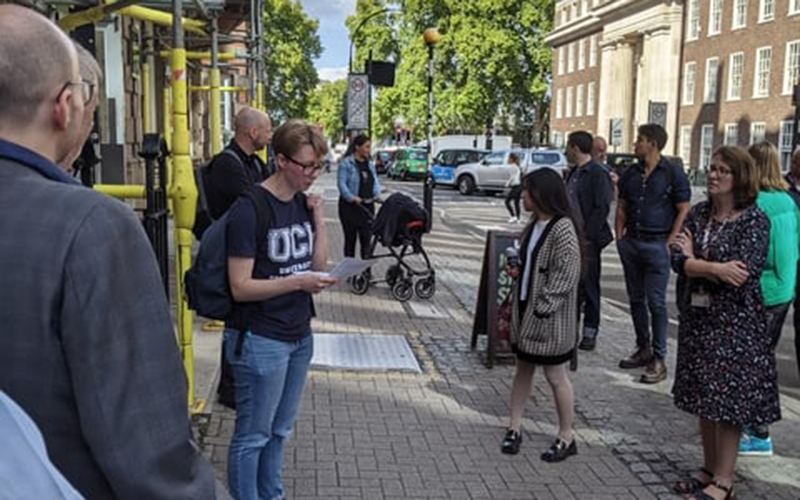Global citizenship education in post-conflict Iraq
By IOE Blog Editor, on 25 October 2023

Michael in front of the spiral minaret of the Great Mosque of Samarra. Image permission: Michael Jones.
25 October 2023
By Michael Jones, Development Education and Global Learning MA*
*This programme has been renamed the Global Learning MA.
As an MA student in development education and global learning, my research journey formed a crucial part of my dissertation, which focused on the role of global citizenship education in post-conflict societies. I was drawn to the Iraqi context due to its unique challenges and the potential for education to contribute to peacebuilding and social cohesion, and due to my current position working at the American University of Iraq, Sulaymaniyah.
During my research journey, I had the opportunity to work closely with the ‘Iraqi Travellers Café’ (ITC) initiative, an inspiring organisation that was actively promoting aspects of global citizenship education through its workshops and events in the capital, Baghdad. I was fortunate to witness first-hand the dedication and passion of the ITC team, who were committed to creating transformative educational experiences for participants. The workshops provided a safe and inclusive space for individuals from Iraq’s diverse backgrounds, including the limited foreigners that live in the country, to come together, exchange ideas and engage in critical dialogue about global citizenship. (more…)
 Close
Close




